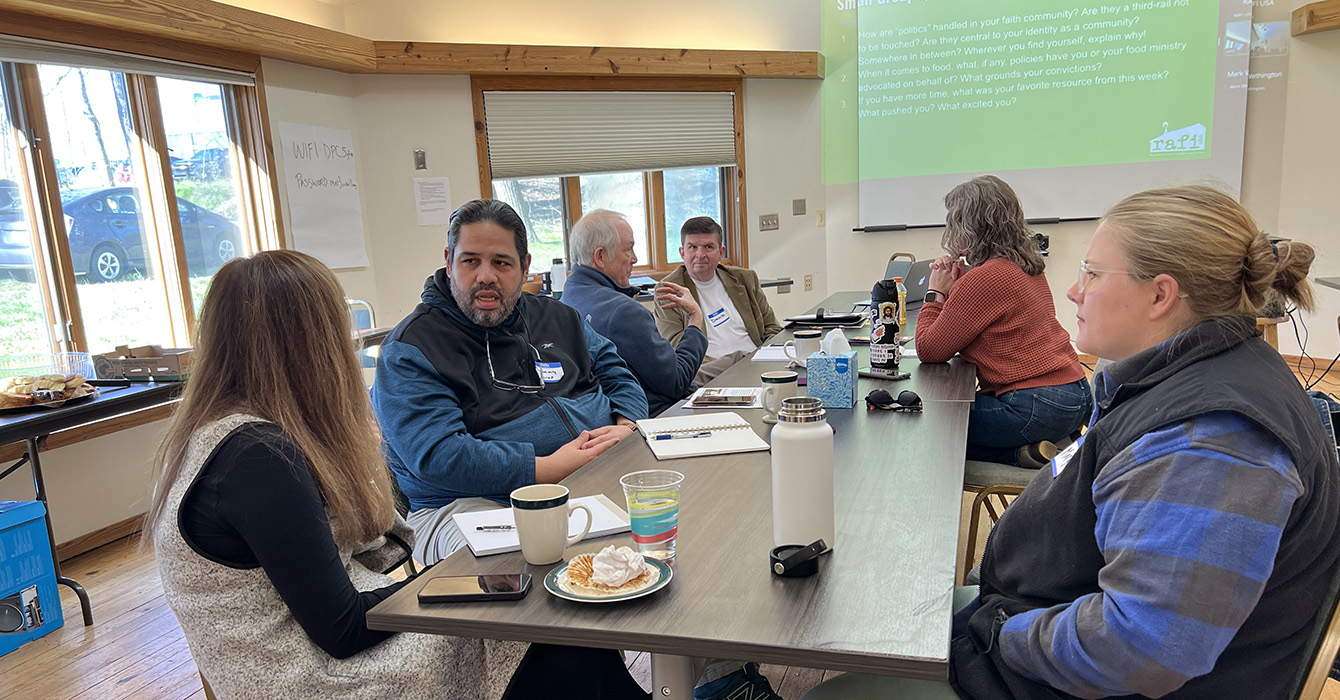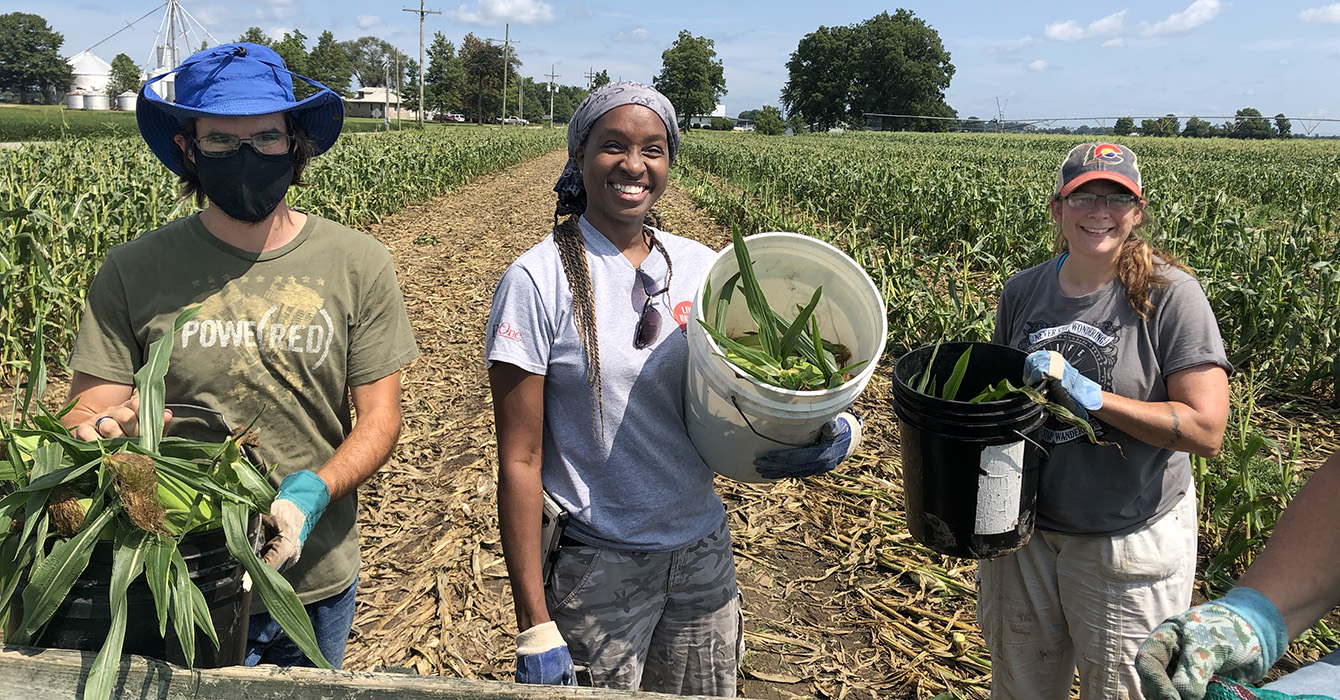My maternal grandmother, Ella Cook, took her mincemeat recipe to the grave with her. She was a teetotaling EUB of the old school, who regarded merger with the Methodists in 1968 as merely the latest apostasy from the old United Brethren ways, which had been handed down at Mount Sinai as codicils to the Ten Commandments. A glass of wine was as serious an affront to her sensibilities as a day of fun would have been to those of Increase Mather.
She had no problem, though, requesting a fifth of brandy each November, to be added to the mysterious blend of ingredients that went into her mincemeat. The brandy made it all “work,” she said, and her mincemeat pies -- “the baking gets rid of all the alcohol” -- were the stuff of legend in our family. They were absolutely essential to Thanksgiving; turkey was optional. Saint Peter now munches happily while those of us remaining in the church militant endure privation.
I was a student at Lebanon Valley College -- formerly EUB -- before I understood the historical importance of Grandma Ella’s recipe. The poor English folk from whom she was descended seldom enjoyed meat in their diets; this was reserved for the upper classes. Mincemeat, then, was a means of transforming a small amount of beef of indeterminate quality -- think “The Cook’s Tale” in Chaucer -- into a palatable form with a reasonable shelf life. The brandy was essential. EUB lifers at Lebanon Valley knew the story well.
Grandma Ella’s mincemeat, then, was emblematic of our family’s journey. It recalled a time when our ancestors had little, were an oppressed class, and struggled for survival. Had we understood all this as I was growing up, we could have cherished Grandma Cook’s mincemeat as EUB matzo and narrated the family history as we enjoyed her pies, celebrating the exodus from poverty in England and the pilgrimage to plenty in America. We could have given appropriate thanks, recalling the place we used to be.
Thanksgiving encourages this nuanced celebration, though the contemporary American holiday veers to the side of conspicuous consumption without the reflection upon our origins. There is the requisite Thanksgiving Proclamation by the president; the Macy’s Thanksgiving Day Parade, culminating in the appearance of Santa Claus; numerous football games, NFL and collegiate; and the eager anticipation of Black Friday, the day-after-Thanksgiving shopping melee that has been known to result in fatality. The Pilgrims who celebrated the first Thanksgiving in 1621, after a dreadful year of illness and hunger, would be appalled.
Central to United Methodist thinking about the sacraments is anamnesis, a Koine Greek term from the New Testament usually translated into English as “remember” or “remembrance.” When Jesus says, “Do this in remembrance of me,” instituting the Eucharist, the original text has anamnesis, both in Luke and in 1 Corinthians.
But anamnesis doesn’t mean merely to remember, in the sense of fondly recalling Grandma Cook’s mincemeat pies; instead, it means to make the power of a past event present in the now. When we come to the Lord’s Table, remembering in the New Testament sense, we encounter the power of Jesus’ death and resurrection. The Lord who meets us is the One who not only ate with the Twelve in the upper room before his passion but also broke the bread at Emmaus the day of his resurrection. It is one continuous narrative of salvation, the two breakings of bread being inseparable from one another.
Suppose we undertook to celebrate Thanksgiving by appropriating the New Testament sense of remembering. We would give thanks not only because of what we have but also because of where we used to be, and because of the time when we had not. This was the sense the Massachusetts Pilgrims brought to their table in the autumn of 1621, all 53 who had survived the first winter in New England.
They remembered not only the perilous voyage across the Atlantic in the Mayflower but also those who had died in the preceding months and were absent from the community table. They remembered where they had been, the friends and family who were now gone, and the hunger that had gnawed at them that first winter. All were interwoven at that thanksgiving meal, shared with Native Americans. Anamnesis created authentic thanks.
Pastors find this time of year especially challenging, not only because our cultural amnesia has made contemporary Thanksgiving a day of excess, the bounty quickly consumed so we can get on with the football, but also because Christmas creep -- Santa at the end of the Macy’s parade -- has robbed Thanksgiving Day of its solemnity and historic significance. It no longer stands alone but is brief prelude to the commercial cacophony that begins on Black Friday.
The church finds itself trying to sing the Lord’s song in a strange land. Perhaps by reminding folk of where we used to be -- among those who walked in darkness -- and of the time when we had not -- the poverty of spiritual hunger -- pastors might unleash the power of anamnesis in the church and enable the same authentic thanks that came to the table in Plymouth in 1621.















